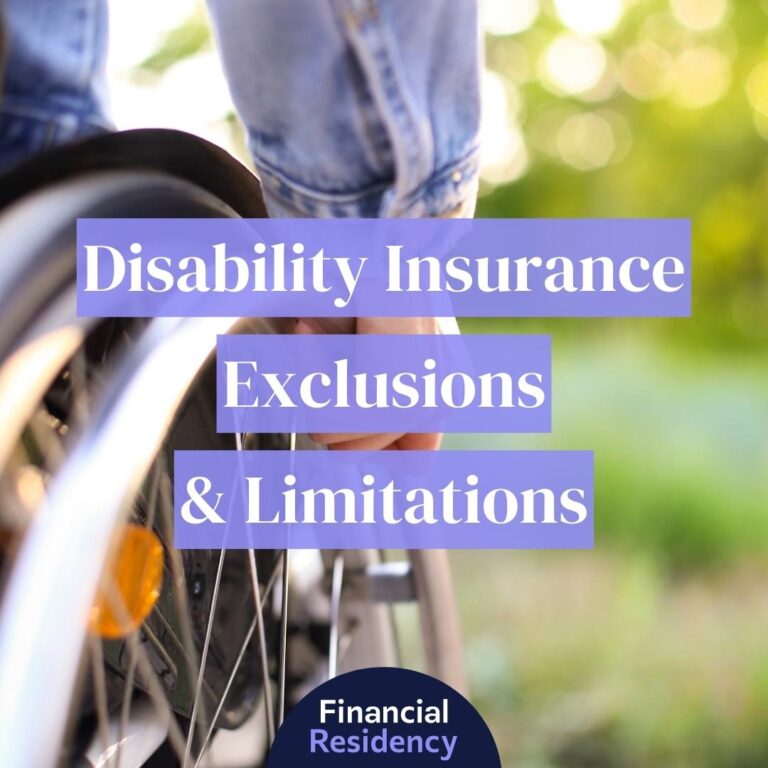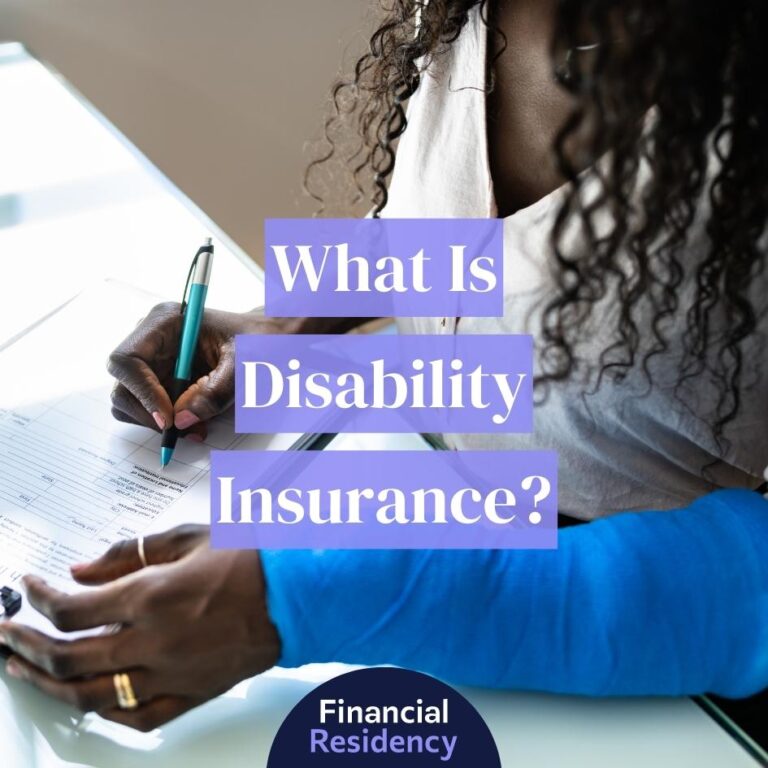You likely have a higher income to protect as a veterinarian, but what would happen if you couldn’t work starting tomorrow? Disability insurance ensures you can protect yourself and your family should the unthinkable occur.
There are many options for disability insurance, including short and long-term options. This guide will cover everything you should know when choosing the right policy.
Why Do Veterinarians Need Disability Insurance?
You may think you’re financially stable because you have a well-paying job as a veterinarian. But what happens if you can no longer perform those duties? Who will cover your bills and your daily cost of living if you aren’t bringing in steady pay?
One in four adults over 20 years old will suffer some type of disability, and that doesn’t just mean accidents. Heart attacks, cancer, and physical issues, such as back injuries, can render a veterinarian unable to work.
Anyone with a disability must consider how they’ll maintain their lifestyle and pay the daily living expenses, such as a mortgage, car payment, taxes, utilities, and medical care. But veterinarians also have the burden of student loans.
The average veterinarian leaves school with $179,505 in student loan debt. How would you repay it if you are unable to work?
Disability Risk for Veterinarians
Any profession poses risks to its workers, and any can experience things like heart attack or stroke. However, veterinarians face other specific risks and have the second highest incidence of workplace injuries, next to people working in nursing homes.
- Physical and mental health damage from a frightened or stressed animal, such as animal bites or being kicked
- Physical damage from bending, lifting, and twisting to care for animals
- Infectious diseases that may spread from animal to human
- Radiation exposure
Eligibility Factors
To be eligible for disability insurance for veterinarians, you must consider certain eligibility factors. Each insurance company has different requirements, but here’s what to expect overall.
- Age: The older you are when you apply for disability insurance, the more it may cost. You may also face more exclusions or trouble getting approved. The younger and healthier you are, the easier time you’ll have getting approved at lower premiums.
- Pre-existing conditions: Disability insurance companies look at your past health history to determine the health of your heart and the risk of major illnesses, such as diabetes or cancer. They take tests to check kidney health, cholesterol, and measurements to determine if you’re obese and at risk of other health issues.
- Occupation: The riskiness of your occupation determines your eligibility and premiums. As a veterinarian, you face many risks.
- Income: Most insurance companies don’t provide 100% replacement of your income, but they’ll consider how much you earn when providing a policy. Insurance companies want to ensure they don’t over-insure you, but you should also ensure you have enough to cover your needs.
- Hobbies: If you live a dangerous lifestyle, your insurance company may exclude them from your policy.
5 Best Disability Insurance Companies for Veterinarians
Several great companies offer disability insurance for veterinarians including:
1. MassMutual
- AM Best Rating: A++
- BBB Rating: A
MassMutual offers disability insurance with many riders to customize your policy. They issue policies for ages 18 to 64 and have elimination periods of 60, 90, 180, 365, or 730 days.
MassMutual offers benefit periods of 2, 5, or 10 years. They also have policies that go up to age 65, 67, or 70. They offer various discounts, including a spousal discount, and discounts for multiple policies, including life insurance.
2. Ameritas
- AM Best Rating: A
- BBB Rating: A+
Ameritas offers benefit periods of 2, 5, or 10 years. They also offer policies that go up to the age of 65 or 67.
The policies include the option for many riders, including a Cost of Living Adjustment that increases your policy amount after a year of disability according to the current cost of living, and a student loan repayment rider, offering up to $2,500 a month to repay student loans while disabled.
3. Guardian
- AM Best Rating: A
- BBB Rating: A
Guardian disability insurance has the longest benefit periods we’ve seen, with coverage up to age 70. They also offer standard benefit periods of 2, 5, and 10 years and policies up to age 65 and 67.
Guardian offers a large selection of riders and has one of the most profound selections of riders to help customize your policy, including partial disability, cost of living, and future increase option riders.
4. Principal
- AM Best Rating: A+
- BBB Rating: A+
Principal offers guaranteed premium rates to age 65, 67, or 70, and the policies are conditionally renewable for life. They also offer benefit periods of 2 or 5 years or age 65 or 67. They have elimination periods ranging from 60 to 365 days and offer many discounts.
The company is also well-known for their disability insurance riders, including Annual Increase, Catastrophic Disability, Cost of Living, and a Supplemental Health Benefit rider.
5. The Standard
- AM Best Rating: A
- BBB Rating: A+
The Standard offers any occupation and own occupation policies, which is a great way to ensure you get coverage if you cannot work your exact position as a veterinarian. Their policies include many benefits, including a premium waiver and family care benefit to help during unique situations.
The company also offers many riders, including benefit increases, catastrophic disability, and a residual disability rider.
Choosing the Right Disability Insurance Policy
Choosing the best disability insurance for veterinarians is a big decision. While you have a handful of companies to consider, many factors differentiate each policy.
Type of Policy
Before purchasing disability insurance, determine the type of coverage you want to purchase, short or long-term.
Short-term coverage covers a loss of income due to a disability for one year or less. In contrast, long-term disability insurance covers you for the entire benefit period (if applicable), which can be 2, 5, or 10 years or until retirement age, depending on your chosen policy.
When choosing the type of policy you need, think of your finances. Consider what you could afford if you no longer had your income and were disabled permanently. For example, if you were disabled at age 35, you wouldn’t be eligible for retirement benefits for 30+ years; how would you survive financially?
Employer Coverage
If you work for a practice, they may offer group disability insurance coverage. Some offer short-term coverage, and others provide long-term coverage. Typically, the coverage isn’t enough to be financially secure, but it may supplement your individual coverage and decrease your overall out-of-pocket costs.
The nice thing about employer coverage is there isn’t any underwriting. The downside, however, is the policy isn’t portable. If you leave the practice, you leave your group disability insurance.
Elimination Period
The elimination period refers to how long you must be disabled before you receive benefits. The longer the elimination period is, the lower your premiums, but you must be able to live comfortably without income.
For example, a short 30-day elimination period is usually best if you don’t have any money saved. This means you have to get through one month before you see income. However, if you have several years of income saved, you may opt for a longer elimination period to keep your premiums lower. Of course, don’t choose an elimination period that will cause financial strain.
Benefit Period
The benefit period refers to how long you’d receive disability payments as long as you are disabled. Benefit periods work the opposite of elimination periods; the shorter the benefit period you choose, the lower the premiums you’ll pay. But, of course, you should purchase a policy that will provide adequate protection.
You can determine the right benefit period by calculating how many years you could survive financially without income and how far you are from retirement. The older you are (closer to retirement), the shorter the benefit period you may need.
Premiums
You pay premiums for disability insurance as long as you want coverage. So even if you are perfectly healthy and working, you must pay your premiums. If your policy lapses for non-payment and you become disabled, you won’t have coverage.
Disability insurance premiums typically cost 1% to 3% of your annual salary. Still, the costs vary based on your qualifying factors and your desired customized features, such as riders and the chosen elimination and benefit periods.
Riders
Many disability insurance policies for veterinarians have built-in benefits like guaranteed premiums or waiver of premiums. If the policy doesn’t have the benefits you need, you can add riders for an additional cost. Be sure the policy you choose has the coverage options you need should the unthinkable occur.
How Much Disability Insurance Coverage Do You Need?
No two veterinarians need the same amount of disability insurance coverage. In general, you should cover at least 60% of your income. But the amount you need depends on many factors.
Here are some questions to ask yourself:
- Do you have any group disability insurance policies?
- Are you expecting a salary increase (especially new vets)?
- How much debt do you have?
- What are your monthly expenses?
- How much money do you have saved to protect you if you’re disabled?
- Does your spouse work, and are they a high earner?
Frequently Asked Questions
Is Disability Insurance Different From Health Insurance for Veterinarians?
Disability insurance only kicks in if you become disabled and cannot work. Your disability must fall under one of the covered events in your policy. Health insurance helps reduce out-of-pocket costs for regular and unexpected healthcare, such as doctor and hospital visits.
Can Veterinarians Customize Their Disability Insurance Coverage?
Most disability insurance companies offer riders and other options to customize your coverage. At the very least, you’ll choose your benefit and elimination periods. Still, you can add riders, choose your benefit amount up to the maximum allowed, and customize other features depending on the selected insurance company.
How Long Does Disability Insurance Coverage Typically Last for Veterinarians?
You choose the benefit period you can afford and need. Most insurance companies offer benefit periods from two to 10 years. Many also offer policies you can purchase through retirement age, usually 65 or 67.
Do Factors Like Age or Health Impact the Cost of Disability Insurance for Veterinarians?
Yes, just like most other insurance policies, insurance companies must assess your risk, which includes evaluating your age and health. They need to know the likelihood of you becoming disabled for things like a heart condition or musculoskeletal issues due to being overweight.
Our Methodology
When finding the best disability insurance for veterinarians, we consider many factors:
- Financial strength: We consult sources like AM Best and the Better Business Bureau only to find financially strong companies
- Premiums: We consider an insurance company’s premiums, what they consider, and the options offered
- Riders: It’s essential to have a customizable policy so you have adequate coverage should you become disabled
- Terms: We believe you should have many options for terms to protect your family as much as possible
Final Thoughts
Choosing the best disability insurance for veterinarians is a key component of your financial planning. No one can predict the future, and it’s better to be safe than sorry. Purchasing adequate disability insurance ensures you can cover your daily cost of living and debts and protect your family during times of crisis.



